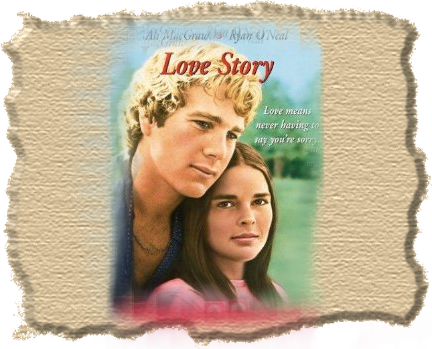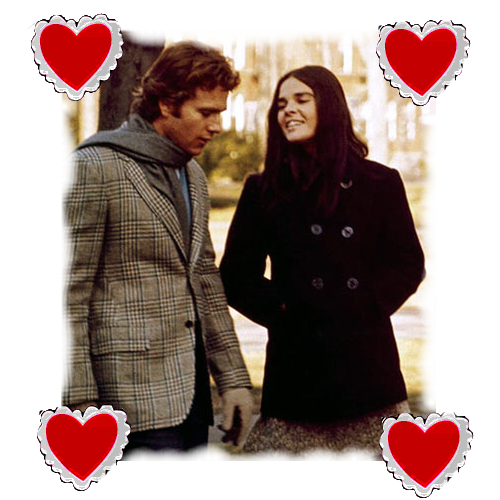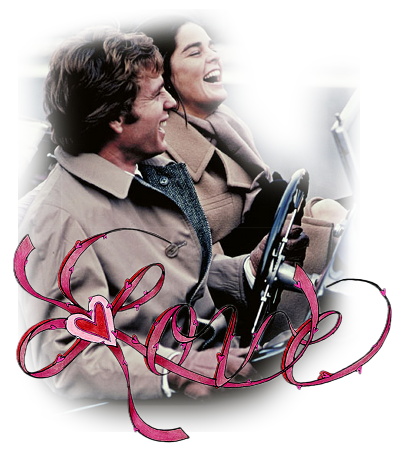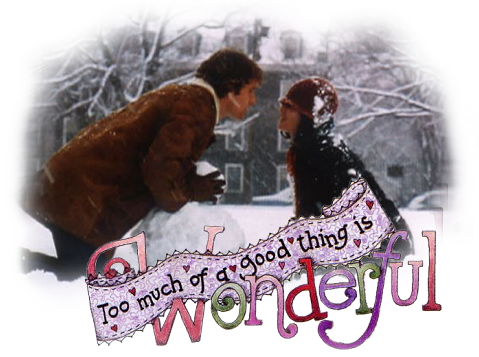
LOVE STORY

A box office phenomenon at the time (this was one of those movie that people reportedly waited in line for hours to see), and I was one of them. We didn't even know the term chick flick back then but to some that might have been right but I do remember a few guys getting choked up too...
All the girls wanted to look like her and all the guys wanted to be as cool as him.
The line that everyone remembers is...
"Love means never having to say you're sorry" is a line from the novel and 1970 film Love Story starring Ali MacGraw and Ryan O'Neal. The line is spoken twice in the film: once in the middle of the film, by Jennifer Cavilleri (MacGraw's character), when Oliver Barrett (O'Neal) is about to apologize to her for his anger; and as the last line of the film, by Oliver, when his father says "I'm sorry" after learning of Jennifer's death. In the script the line is phrased slightly differently: "Love means not ever having to say you're sorry." The line proved memorable, and has been referenced ever since. In 2005 it was voted #13 in the American Film Institute's list AFI's 100 Years... 100 Movie Quotes.

The catchy, haunting, piano-plinking score won the Best Original Score Oscar (the film's sole award) for Francis Lai from its seven Academy Awards nominations: Best Picture, Best Actor (Ryan O'Neal), Best Supporting Actor (John Marley), Best Actress (Ali MacGraw), Best Director (Arthur Hiller), and Best Original Story and Screenplay (Erich Segal). Beau Bridges, Michael York, Michael Douglas, Jon Voight, Michael Sarrazin and Peter Fonda all turned down the part of Oliver - which ultimately went to Ryan O'Neal.
This film rescued Paramount from total bankruptcy (it was the 9th most profitable studio at the time), and began an incredible streak of major successes under Paramount VP of development Robert Evans' stewardship, including Harold and Maude (1971), The Godfather (1972), Play It Again, Sam (1972), The Getaway (1972), Serpico (1973), The Great Gatsby (1974), Chinatown (1974), Marathon Man (1976) and Black Sunday (1977). An inferior sequel was produced later in the decade - Oliver's Story (1978) pairing a still-grieving Ryan O'Neal with Candice Bergen.

Told as a flashback, this is an uncomplicated love story between two star-crossed lovers-students, Harvard pre-law hockey player Oliver Barrett IV (Ryan O'Neal) and Radcliffe music student Jenny Cavalleri (Ali MacGraw). Oliver narrates the opening line of the film, looking back:
What can you say about a twenty-five-year-old girl who died? That she was beautiful and brilliant? That she loved Mozart and Bach, the Beatles, and me?

Their love triumphs over different economic-class backgrounds (he is a "preppie millionaire," she a smart-mouthed "social zero" from a blue-collar Italian/American family). Their main obstacle to romance is that his rich, powerful and snobbish father, Oliver Barrett III (Ray Milland) objects and threatens to cut off funding: "Oliver, if you marry her now, I'll not give you the time of day." To which the younger, bull-headed Oliver defiantly asks: "What offends you more, Father, that she's Catholic, or poor?" He ultimately responds: "Father, you don't know the time of day."
They don't make them like this anymore....
Maybe you have to go out there and live your own love story....
